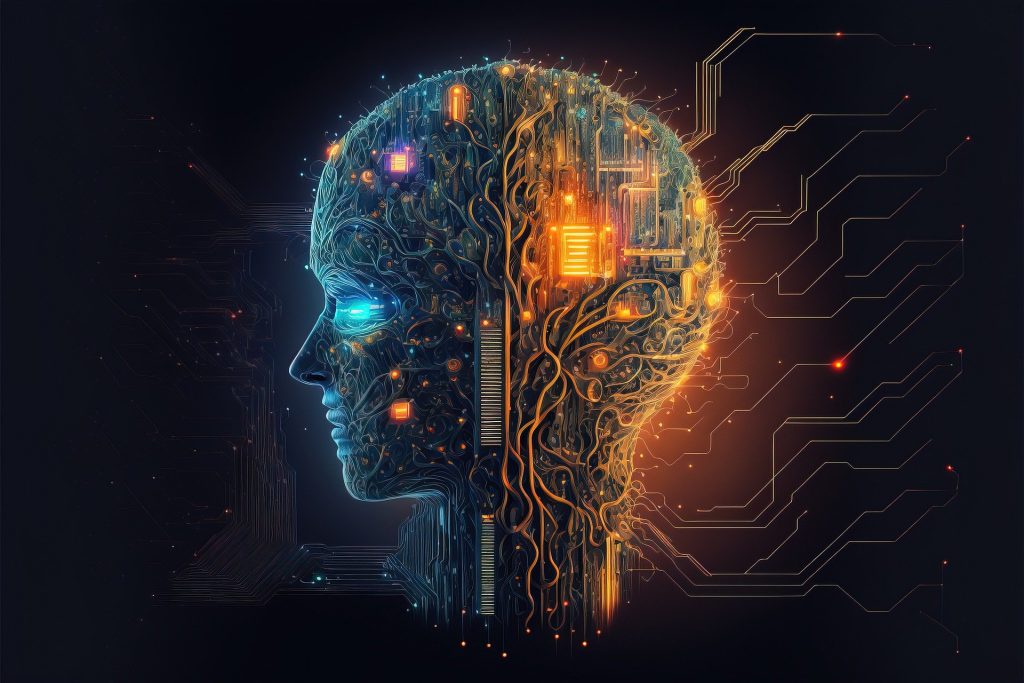In recent years, artificial intelligence (AI) has become increasingly prevalent in detective work. AI-powered tools are being utilized to analyze vast datasets, identify patterns, and predict criminal behavior. These technologies are transforming crime-solving methods and providing law enforcement with advanced capabilities to combat illegal activities.
As AI technology progresses, detective tools are becoming more sophisticated and accurate, making them crucial assets in crime prevention and investigation. The proliferation of AI detective tools is largely driven by the growing volume of data available to law enforcement agencies. The widespread use of digital devices and surveillance systems has generated an abundance of information that can be analyzed to aid in solving crimes.
AI tools can process and examine this data at speeds and scales far beyond human capabilities, enabling law enforcement to swiftly identify potential suspects, track their movements, and gather evidence to build cases. Consequently, AI detective tools have become an integral component of modern crime-solving techniques. Additionally, the increasing complexity of criminal activities has contributed to the rise of AI detective tools.
Criminals are employing more sophisticated methods, often leveraging technology to commit crimes and conceal their actions. AI detective tools are designed to keep pace with these advancements, utilizing algorithms and machine learning to stay ahead of criminal tactics. This has made it more challenging for offenders to evade detection, as AI tools can uncover even well-hidden criminal activities.
As a result, law enforcement agencies are increasingly relying on AI detective tools to assist in solving complex and challenging cases.
Key Takeaways
- AI detective tools are on the rise, revolutionizing the way crimes are solved
- AI technology is incredibly accurate, providing unprecedented levels of precision in crime solving
- Ethical concerns arise as AI detective tools raise questions about privacy and bias
- AI detective tools have a significant impact on law enforcement, changing the way investigations are conducted
- The future of AI detective tools holds promise, but also potential dangers if relied on solely for crime solving
How AI is Revolutionizing Crime Solving
Data Analysis: Speed and Accuracy
Traditional methods of crime solving often rely on manual analysis of evidence, which can be time-consuming and prone to human error. AI detective tools, on the other hand, are able to process vast amounts of data in a fraction of the time it would take a human investigator. This allows law enforcement to quickly identify patterns and connections that may have otherwise gone unnoticed, leading to faster and more accurate crime solving.
Predictive Capabilities: Staying One Step Ahead
By analyzing historical crime data and other relevant information, AI can identify trends and patterns that may indicate where and when future crimes are likely to occur. This predictive capability allows law enforcement to allocate resources more effectively, focusing on areas where crime is most likely to happen. This not only helps prevent crime but also allows law enforcement to be more proactive in their approach to crime solving.
Identification and Apprehension: Facial Recognition and Beyond
AI detective tools are also being used to assist in the identification of suspects. Facial recognition technology, for example, can be used to match images of suspects with databases of known criminals, making it easier for law enforcement to identify and apprehend suspects. This has proven to be a valuable tool in solving cold cases and tracking down fugitives.
Overall, AI detective tools are revolutionizing crime solving by providing law enforcement with powerful new capabilities that were previously unavailable.
The Unbelievable Accuracy of AI Detective Tools

One of the most remarkable aspects of AI detective tools is their unbelievable accuracy. These tools are able to process and analyze vast amounts of data with a level of precision that far exceeds what is possible for humans. This allows them to identify patterns and connections that may have otherwise gone unnoticed, leading to more accurate crime solving.
In addition, AI detective tools are also able to make predictions about future criminal behavior with a high degree of accuracy, allowing law enforcement to take proactive measures to prevent crime. Furthermore, the accuracy of AI detective tools extends to the identification of suspects. Facial recognition technology, for example, has become incredibly accurate in recent years, allowing law enforcement to quickly and accurately match images of suspects with databases of known criminals.
This has proven to be a valuable tool in solving crimes and tracking down suspects who may have otherwise evaded capture. Overall, the unbelievable accuracy of AI detective tools is revolutionizing the way crimes are solved and is providing law enforcement with powerful new capabilities. Another aspect of the accuracy of AI detective tools is their ability to analyze and interpret complex data sets.
Traditional methods of crime solving often rely on human investigators to manually analyze evidence and draw conclusions. This can be time-consuming and prone to human error. AI detective tools, on the other hand, are able to process and analyze data at a speed and scale that would be impossible for humans to achieve.
This allows them to quickly identify patterns and connections that may have otherwise gone unnoticed, leading to more accurate crime solving.
The Ethical Concerns Surrounding AI Detective Tools
While AI detective tools offer many benefits in the fight against crime, they also raise a number of ethical concerns. One of the key concerns is the potential for bias in AI algorithms. If these algorithms are trained on biased data sets, they may produce biased results, leading to unfair treatment of certain groups or individuals.
This has raised concerns about the potential for AI detective tools to perpetuate or even exacerbate existing biases within the criminal justice system. Furthermore, there are concerns about privacy and civil liberties when it comes to the use of AI detective tools. These tools often rely on large amounts of data, much of which may be collected without the knowledge or consent of individuals.
There is a risk that this data could be used in ways that infringe upon individuals’ privacy rights or lead to unwarranted surveillance. As a result, there is a need for clear guidelines and regulations governing the use of AI detective tools to ensure that they are used in a way that respects individuals’ rights and freedoms. Another ethical concern surrounding AI detective tools is the potential for misuse or abuse.
These tools have the potential to be incredibly powerful, and there is a risk that they could be used in ways that are unethical or even harmful. For example, there is a concern that AI detective tools could be used for mass surveillance or other forms of government overreach. There is also a risk that these tools could be used in ways that violate individuals’ rights or lead to unjust outcomes within the criminal justice system.
As a result, there is a need for careful oversight and accountability when it comes to the use of AI detective tools.
The Impact of AI Detective Tools on Law Enforcement
The impact of AI detective tools on law enforcement has been profound. These tools have provided law enforcement with powerful new capabilities that have revolutionized the way crimes are solved. One of the key impacts of AI detective tools is their ability to process and analyze large amounts of data at a speed and scale that would be impossible for humans to achieve.
This has allowed law enforcement to quickly identify patterns and connections that may have otherwise gone unnoticed, leading to faster and more accurate crime solving. Furthermore, AI detective tools have also had an impact on the allocation of resources within law enforcement agencies. By using predictive analytics, these tools can help law enforcement identify areas where crime is most likely to occur, allowing them to allocate resources more effectively.
This has proven to be an invaluable tool in preventing crime and improving public safety. In addition, AI detective tools have also been used to assist in the identification of suspects, making it easier for law enforcement to track down criminals and bring them to justice. Another impact of AI detective tools on law enforcement is their ability to assist in solving complex and challenging cases.
These tools are able to keep pace with advancements in criminal activities, using algorithms and machine learning to stay one step ahead of criminals. This has made it increasingly difficult for criminals to evade detection, as AI detective tools are able to uncover even the most well-concealed criminal activities. As a result, law enforcement agencies are increasingly turning to AI detective tools to help them solve complex cases that would have been nearly impossible without this technology.
The Future of AI Detective Tools

The future of AI detective tools looks incredibly promising. As technology continues to advance, these tools will become even more sophisticated and powerful, providing law enforcement with new capabilities that were previously unimaginable. One area where we can expect significant advancements is in predictive analytics.
As algorithms become more advanced and data sets become larger and more comprehensive, AI detective tools will become even better at predicting criminal behavior and identifying patterns that may indicate where and when future crimes are likely to occur. Furthermore, we can expect advancements in facial recognition technology, which will make it even easier for law enforcement to identify suspects and track down criminals. This technology has already proven to be incredibly valuable in solving crimes and tracking down fugitives, and as it continues to improve, its potential will only grow.
In addition, we can expect advancements in the use of AI detective tools in forensic analysis, allowing law enforcement to more accurately analyze evidence and build stronger cases against criminals. Another area where we can expect significant advancements is in the ethical considerations surrounding AI detective tools. As these tools become more prevalent in law enforcement, there will be an increasing need for clear guidelines and regulations governing their use.
This will require careful consideration of privacy rights, civil liberties, and potential biases within AI algorithms. As a result, we can expect significant advancements in the ethical framework surrounding the use of AI detective tools.
The Potential Dangers of Relying Solely on AI Detective Tools
While AI detective tools offer many benefits in the fight against crime, there are also potential dangers associated with relying solely on this technology. One of the key dangers is the potential for over-reliance on AI algorithms. While these algorithms are incredibly powerful and accurate, they are not infallible.
There is a risk that law enforcement agencies may become overly reliant on these tools, leading them to overlook important evidence or make decisions based solely on algorithmic outputs. This could lead to unjust outcomes within the criminal justice system. Furthermore, there is a risk that relying solely on AI detective tools could lead to a loss of human judgment and intuition within law enforcement.
While these tools are able to process and analyze vast amounts of data with incredible speed and accuracy, they lack the ability to understand context or exercise empathy. Human investigators bring a level of judgment and intuition that cannot be replicated by machines, and there is a risk that relying solely on AI algorithms could lead to a loss of this important human element within law enforcement. Another potential danger of relying solely on AI detective tools is the risk of technological failures or malfunctions.
While these tools are incredibly powerful when they work as intended, there is always a risk of technical issues or errors that could lead to inaccurate results or false conclusions. This could have serious consequences within the criminal justice system, leading to wrongful convictions or other miscarriages of justice. As a result, there is a need for careful consideration of the limitations and potential risks associated with relying solely on AI detective tools.
In conclusion, while AI detective tools offer many benefits in the fight against crime, they also raise a number of ethical concerns and potential dangers that must be carefully considered. As technology continues to advance, it will be important for law enforcement agencies to strike a balance between harnessing the power of AI detective tools and ensuring that they are used in a way that respects individuals’ rights and freedoms. By carefully considering these ethical concerns and potential dangers, we can ensure that AI detective tools continue to be a valuable asset in the fight against crime while minimizing their potential risks.
FAQs
What are AI detective tools?
AI detective tools are software programs that use artificial intelligence and machine learning algorithms to analyze and interpret large amounts of data in order to assist in solving crimes and identifying suspects. These tools can process and analyze data from various sources such as surveillance footage, social media, and criminal databases to provide insights and patterns that can aid law enforcement agencies in their investigations.
How do AI detective tools work?
AI detective tools work by using advanced algorithms to process and analyze large volumes of data, including images, videos, text, and other forms of digital evidence. These tools can identify patterns, anomalies, and correlations within the data that may not be immediately apparent to human investigators. By automating the analysis process, AI detective tools can help law enforcement agencies to quickly identify potential leads and suspects in criminal investigations.
What are the benefits of using AI detective tools?
Some of the benefits of using AI detective tools include:
– Faster analysis of large volumes of data
– Improved accuracy in identifying patterns and correlations
– Enhanced ability to identify potential suspects and leads
– Reduction in human error and bias
– Cost savings for law enforcement agencies
– Ability to process and analyze data from multiple sources simultaneously
What are the limitations of AI detective tools?
While AI detective tools offer many benefits, there are also limitations to consider. These may include:
– Dependence on the quality and quantity of available data
– Potential for algorithmic bias and errors
– Ethical and privacy concerns related to the use of personal data
– The need for human oversight and interpretation of results
– The potential for misuse or abuse of the technology
How are AI detective tools being used in law enforcement?
AI detective tools are being used in law enforcement to assist in a wide range of activities, including:
– Analyzing surveillance footage to identify suspects
– Processing and analyzing digital evidence from crime scenes
– Monitoring social media and online platforms for potential criminal activity
– Identifying patterns and trends in criminal behavior
– Assisting in the identification and tracking of suspects and persons of interest



